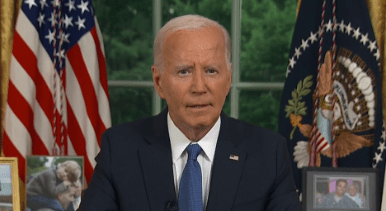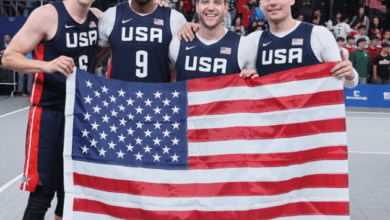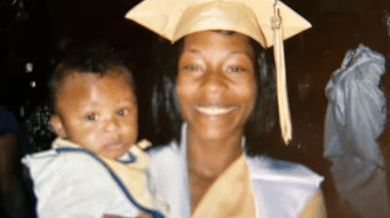Uber Eats labels Palestinian restaurants in Toronto as ‘Israeli,’ sparking uproar | CBC News

Several Toronto restaurants are seeking an explanation from Uber Eats after the food delivery app mislabelled them as “Israeli” on the weekend.
Levant Pizza, a Palestinian Lebanese pizzeria, posted on Instagram Saturday that it had come up in search results for “Israeli” but not “Palestinian,” despite having made a deliberate choice to be listed as Palestinian. As it turned out, its searches found more than 300 Middle Eastern restaurants in the Greater Toronto Area, including Palestinian, Lebanese, Iraqi and Afghan eateries, had been moved under the Israeli categorization.
Costa Warwar, who is Palestinian and is head chef and part owner of Flaming Stove, was hurt to see his restaurant included among those miscategorized as Israeli.
“I was very saddened. Something that goes into your heart and squeezes it, that’s the feeling that I had,” he said. “I was feeling that something that’s mine being taken away from me — which is my food — and being described as something completely different.”
After Levant’s owners raised alarms about the change on Saturday, calling it a “blatant anti-Palestinian action” in an Instagram post that garnered widespread attention, receiving more than 1,300 comments.
Uber Eats responded in a comment, saying it had escalated the complaint to a specialized team to investigate.
In a statement sent to CBC Monday, Levant said its staff were “shocked and disappointed” to be labelled as an Israeli restaurant on the app.
The restaurant’s statement also said the Uber Eats Canada team has been a willing partner and staff are hopeful they will get resolution.
Uber Eats says the miscategorization was ‘unintentional’
Uber Eats made a change on the weekend to no longer put all Middle Eastern restaurants under the Israeli categorization.
A spokesperson for the platform said in an email Monday that the issue relates to searches for “similar” results, and Uber Eats has made a change to ensure only “exact match” results are returned for Israeli and Palestinian terms.
“This unintentional issue has been fixed, we’ve apologized to the restaurant and our engineering teams are working on changes to help prevent it from happening in the future,” said Keerthana Rang.
Now, she said, results will only show restaurants with menu items that use the exact term in their name, such as Israeli couscous. Because Levant does not have any menu items with the word Palestinian in its name, under the new rules it would still not show up in searches for Palestinian.
Hamsa Diab Farhat, a Lebanese Canadian content creator, event producer and activist who is well acquainted with the city’s Arab restaurants as organizer of the Taste of the Middle East festival, published a TikTok about the issue that has been watched more than 278,000 times.
She received responses from around the world showing the issue was global, not just in Toronto or even North America.
Restaurants seeking apology, new Palestinian category
Farhat said Uber Eats’s explanation is still unclear. But while the viral posts have led to calls for boycotts of the platform, Farhat said she prefers to work with Uber Eats to resolve the issue and sort out what happened.
“We want to get to the bottom of it. If it’s unintentional … that’s fine. And if they work with us to fix it, also that’s fine. But we do want a public statement about it. We don’t want it just to be ignored,” she said.
“It’s a very sensitive subject, and they do know that.”
Farhat is calling for a full investigation and public apology from Uber Eats, as well as an elevation of Palestinian establishments and a Palestinian category on the app, and a written agreement from Uber Eats to act as a good faith partner with all Arabic restaurants going forward.
Pro-Palestinian activists are calling for a national day of action and boycott against businesses tied to Israel’s actions in the occupied West Bank and Gaza. Supporters of Israel call the movement antisemitic.
Warwar has contacted Uber Eats asking for his restaurant to be categorized as Palestinian. He said he is not trying to make the issue political, and credited Uber Eats with acting “faster than I ever expected” to resolve the issue.
“I will speak as a simple Palestinian chef — nothing more, nothing less,” he said.
“Culturally you are made from many things. But part of these many things are three very important ones — your language, your food and your culture …. If that is taken from us, what is left for us to identify with?”





